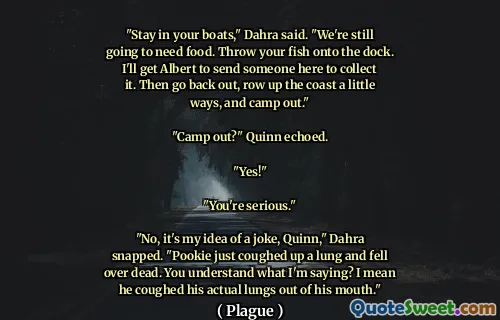"Plague" by Albert Camus explores the human condition through the lens of an epidemic striking the Algerian town of Oran. As a mysterious plague emerges, the citizens grapple with fear and denial, revealing the complexities of human nature under duress. The narrative unfolds through the eyes of several characters, including Dr. Rieux, who serves as the moral center, fighting the disease while coping with loss and despair.
Camus delves into themes of existentialism, suffering, and the search for meaning in chaotic circumstances. The plague serves as a powerful metaphor for both physical illness and broader existential crises. The townspeople's responses range from rebellion to acceptance, reflecting varied approaches to suffering and mortality.
Ultimately, "Plague" illustrates the resilience of the human spirit amidst adversity. Through the struggles and triumphs of its characters, Camus invites readers to confront the absurdity of life while inspiring solidarity and hope in the face of overwhelming challenges.
More »
Today Birthdays
1729 -
Edmund Burke
1949 -
Haruki Murakami
1954 -
Howard Stern
1876 -
Jack London
1993 -
Zayn Malik
1951 -
Kirstie Alley
1863 -
Swami Vivekananda
1923 -
Alice Miller
1987 -
Naya Rivera
1825 -
Brooke Foss Westcott
1944 -
Joe Frazier
1951 -
Rush Limbaugh
1964 -
Jeff Bezos
1978 -
Jeremy Camp
1628 -
Charles Perrault
1856 -
John Singer Sargent
1970 -
Kaja Foglio
1953 -
Rick Santelli
1986 -
Gemma Arterton
1968 -
Raf Simons
1958 -
Christiane Amanpour
1966 -
Olivier Martinez
1996 -
Ella Henderson
1917 -
Maharishi Mahesh Yogi
1949 -
Ottmar Hitzfeld
1928 -
Ruth Brown
1968 -
Heather Mills
1946 -
George Duke
1968 -
Rachael Harris
1923 -
Ira Hayes

